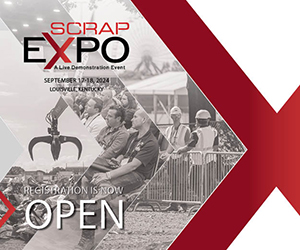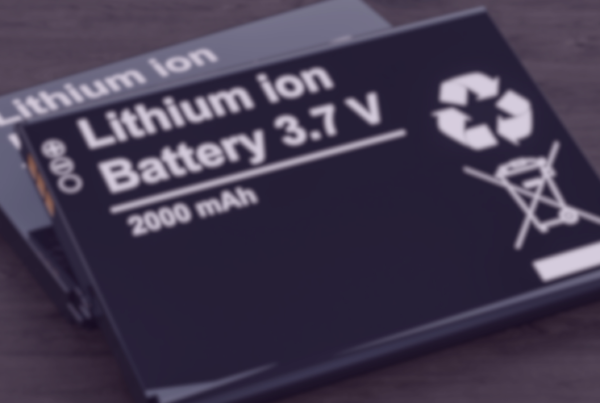The joint shredder committee and ferrous division meeting began with an update from Joe Pickard, ISRI’s chief economist and director of commodities, on the Shredder Wear Parts tariff. There haven’t been any announcements from USTR regarding the request for renewed exclusions under the section 301 tariff, which include shredder wear parts. ISRI is working with Holland and Knight and expects it may still be some time before an announcement is made. Billy Johnson, ISRI’s chief lobbyist, gave an update on two upcoming bills that may help drive the USTR toward announcing a decision sooner rather than later. Pickard noted that both ISRI and Holland and Knight are monitoring the situation and will keep members updated.
ISRI president Robin Wiener gave an update from the VOC Steering Group that is working on the issue of the EPA’s enforcement regarding shredders. ISRI has partnered with Holland and Knight and Hogan Lovells on this issue. The law firms have been in communication with EPA’s enforcement office so ISRI and EPA can work on a collaborative agreement for onramp and offramp enforcement.
Wiener introduced the divisions to Fred Fischer, ISRI’s new Assistant Vice President of International Trade. Fischer has more than 30 years of experience working with the USTR. “We’re excited to have Fred on board and glad he was able to join us for this week even though he only started at ISRI last Monday.”
Rebecca Turner, vice president, Education and Events, gave an update on the upcoming Shredder Forum tentatively planned for November 14-15 in Salt Lake City, Utah. Metro Group Inc. will serve as the host to give the tour at the forum. Steven Tusch, Education and Training Committee Chair, noted that he’s excited that the forum will be in Utah this year. “We’ve been East Coast centric, so the move to Salt Lake City is great, we want to make it’s easier for members in different regions.” He asked attendees of the Ferrous Division to attend the Education and Training committee meeting to share their insight and wisdom into the topics for the shredder forum.
Wiseman turned the meeting over to the ferrous side, noting that it was his last meeting as chair of the division. Pickard then provided an update on the economy in 2022 and the impact it’ll have on ferrous markets in the U.S. and around the world. He noted that markets have taken their direction from Russia’s invasion of the Ukraine and the Federal Reserve Board’s recent announcements. Last week the Fed adjusted real GDP growth from 4.0% in Dec. 2021 to 2.8% in Feb. 2022. Producer Price Index (PPI) is up 10% year-on-year for February. There’s been expansion in manufacturing and manufacturing PMI is up 58.6% in February. However, manufacturers are still dealing with supply chain issues, hiring difficulties, shortages of key raw material inputs, and elevated commodity prices. Pickard discussed how the war in Ukraine will impact global iron/steel markets as Russia and the Ukraine are both large producers of these materials.
Steve Levetan provided an update from the auto recycling subcommittee noting that they dealt with two major issues over the last year: the growth of EV batteries and how to deal with them, and the issue of catalytic converter theft. “We’ve been able to pass some good legislation on catalytic converter theft but seen some legislation that either won’t help the problem or may impose higher significant burdens on recyclers,” he says.
Billy Johnson, ISRI’s chief lobbyist, provided an update on some of the transportation issues going on on the Hill. He reviewed the Ocean Shipping Reform Act, which passed in the U.S. House of Representatives at the end of 2021. The Senate’s version of the bill will likely pass this coming week. “The bill will strengthen the enforcement and investigatory powers of the Federal Maritime Commission,” he says. He also gave an update on the Surface Transportations Board’s hearing on competitive switching last week where Bobby Triesch, VP and Regional Manager of SA Recycling, spoke before the STB about the issue and how it impacts recyclers.
David Wallace, senior vice president of Huron Valley Steel Corporation, provided an update on the U.S. Mint’s Mutilated Coin Redemption Program and why domestic recyclers should be allowed to continue participating in the program. In early March, several representatives from the Department of Homeland Security (DHS) took a tour of Wallace’s Michigan plant to better understand how recyclers recover, process, and collect mutilated coins.
Additional Resources













